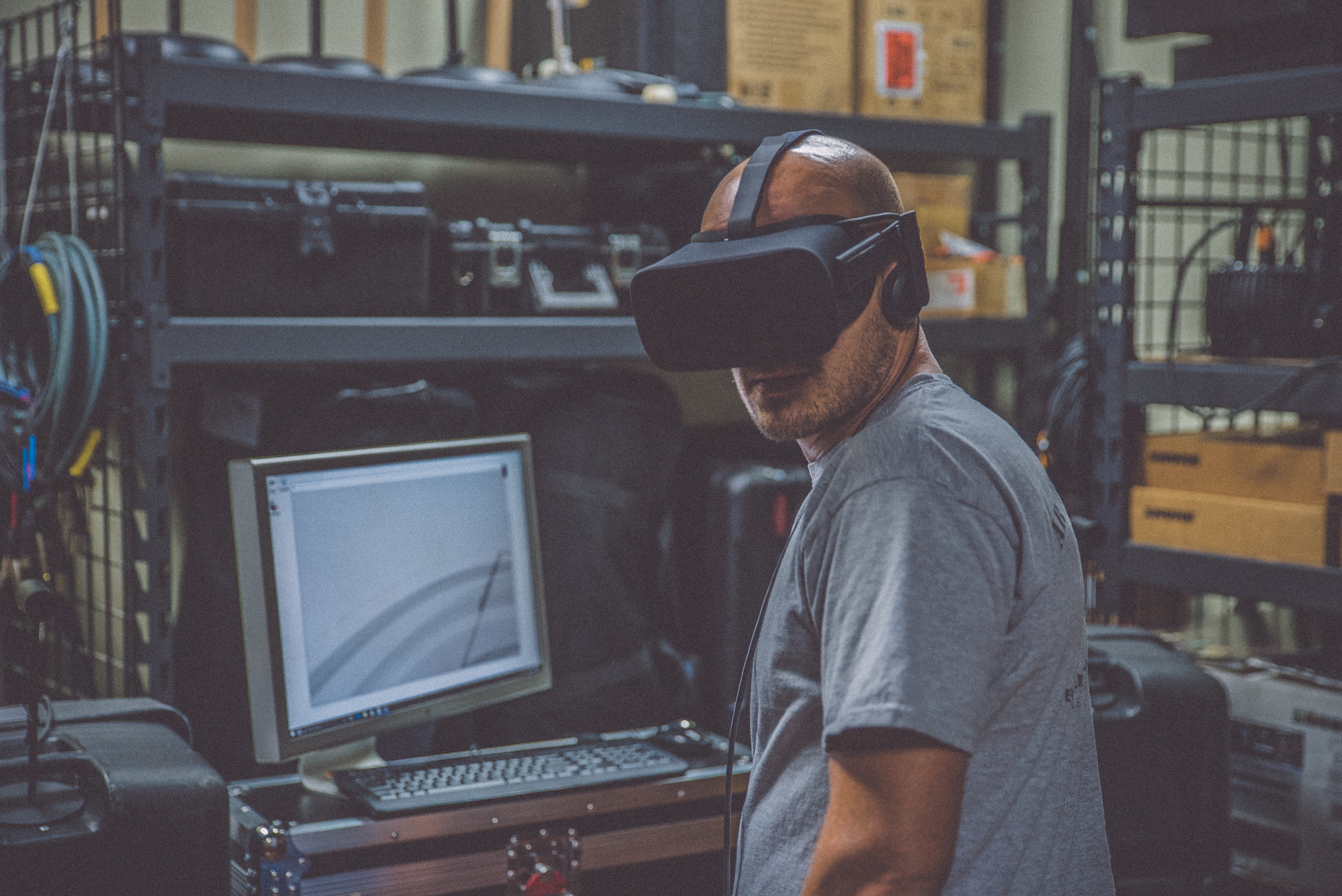Closing train ticket offices represents a new disability barrier
Digitising railway stations and removing staff will make them less accessible - not more.
Last week, hundreds of campaigners, workers and customers attended protests outside Downing Street to protest plans to close hundreds of train ticket offices in one fell swoop. Tory-led austerity has proven time and time again that cuts always come at a human cost. But there are even more costs to this latest round than immediately meets the eye.
As our services become increasingly digital, from customer service checkouts in food shops to our high street banks, the fallout is that people who are digitally excluded lose out. On our railways, one of the main user groups at risk of being disadvantaged by ticket office closures are disabled and elderly passengers, who experience high rates of digital exclusion.
The cuts - which would put 2,000 jobs at risk - have been strongly opposed by unions and disability rights organisations. Public opposition to the cuts have been strong, with the campaign to keep our ticket offices witnessing the largest ever consultation response from the public, with 680,000 people expressing the vital need for our ticket offices. RMT General secretary Mick Lynch said the collective response "reiterated the strength of feeling among the public against the dehumanisation of the rail network."
Alongside the impact on staff, users will lose out if the plans go ahead. One justification for the closures is that 12% of tickets are bought at ticket offices. But this is a huge number - between April 2022 and March 2023, this represents a huge 168 million journeys. With disability campaigners highlighting the importance of staff in providing disabled passengers with physical support using the railways, and unions demonstrating how staff enable customers to navigate unpredictable cancellations and delays, it’s clear that ticket offices are not just a valued service but an intersectional issue at the heart of digitisation.
Machines don’t cater to people with accessibility needs
When I was travelling from London Victoria to Brighton this summer, almost all of the trains were suddenly cancelled. The station was packed, it was rush hour and tourists, commuters and families were suddenly unsure how best to get home. Thankfully, Victoria’s ticket offices were open, which meant passengers were able to get advice on which trains they could use their tickets for and which routes were available to them. That human interaction was vital.
You’ve likely experienced something like this in the past year. The RMT’s ongoing industrial disputes and strikes have shown just how vital our railway staff are. But ticket office closures would be a step backwards for our railways, contrary to the justifications of so-called ‘modernisation’ that Network Rail have used, whilst job security and customer satisfaction erodes further.
This trend of digitising service provision is one unfolding across the country at relentless speed. Across the UK, banks are closing at a rate of 54 a month, in favour of mobile banking. But what does this mean for those who do not know how to use digital technology? Or cannot afford access to the internet? Until everyone has universal access to both the tools and the skills needed to be digitally literate, digital services should be a choice, not an obligation.
“If anything, what our growing preference for train travel needs if it is to be sustainable and efficient is more humans, not machines.”
In the UK, 5.3 million people in the UK lack the “essential digital skills for everyday life”. Those individuals who are digitally excluded are the same individuals who depend on in-person assistance over self-service. What this means is that the shift to digital modes of service provision lock people further out of the public sphere. Older people are one group who are experiencing digital exclusion at high rates; Age UK has estimated that a fifth of over-65s don’t use the internet and are struggling to access basic services as a result.
For those who do not have access to broadband or mobile internet - 7 million households in the UK - using digital technology such as ticket machines or mobile ticket apps can present an intimidating obstacle. It is wrong to assume that everyone knows how to use digital methods, and removing staff from ticket offices before the digital divide is tackled will only institutionalise digital inequality.
Transport for All is a disabled-led charity that has been leading the campaign to prevent the ticket office closures. “Closing ticket offices will further entrench the existing digital exclusion in the UK, and severely curtail many disabled people's ability to use the rail. Disabled people are disproportionately represented in the number of people with no access to the internet, making the online means of booking both tickets and assistance inaccessible for many. Says Katie Pennick, Campaigns and Communications Manager for Transport for All. “The Rail Delivery Group's pledge that disabled people will ‘always be supported’ when travelling by rail is completely at odds with the actual proposals put forward by all train operators, most of which heavily rely on digital solutions such as booking online.”
It isn’t just knowing how to use digital tech, but having the physical ability to is a complex issue. Inclusive design is not yet where it needs to be, meaning that ticket machines do not cater to people with accessibility needs. Two thirds of rail passengers with disabilities face barriers to travel, so removing the human element in our railways will only lead to further exclusion.
“Over half of all non-internet users are Disabled. It’s critical that businesses maintain a mix of ways that Disabled customers can interact with them, including phone, text phone, mail and in-person support.” says Anna Morell from Disability Rights UK.
Digital service provision that doesn’t centre the varying needs of the customers will only leave a widening gap between digital haves and have nots. The Royal National Institute of Blind People estimating that only 3% blind and partially-sighted customers are able to use a ticket machine.
“Blind and partially sighted people already face barriers to independent travel, and closing rail ticket offices would have a severe impact on blind and partially sighted people’s ability to purchase tickets, arrange assistance, and travel by rail.” says Vivienne Francis, Chief Social Change Officer at RNIB. “Modernisation doesn’t mean touchscreens and apps, it should mean inclusivity and not leaving anyone behind.” Vivienne tells The Lead.
Not only this, but TMVs do not offer the 50% discount for disabled customers, meaning that disabled passengers would be penalised financially. “To drop these modes isn’t just discriminatory – the Equality Act is clear that firms must make reasonable adjustments for Disabled people – but economically foolish. With over a fifth of the population being Disabled, the purple pound is worth over £250 billion to the UK economy,” says Anna.
This is the type of shortsightedness in government decision-making that is leading to a widening digital divide. Earlier this year, the Communications and Digital Committee published a report on digital exclusion, stating that the government’s commitment to becoming a technology superpower is at odds with high levels of exclusion, with the digital skills shortage costing the economy up to £63 billion a year. In a country which has the sixth largest economy in the world, the existence of digital exclusion is an act of political negligence.
Elizabeth Anderson, CEO of the Digital Poverty Alliance believes that the scale of this problem cannot be underestimated, and the closing ticket offices will cut people off from accessing an essential public good. “One of the primary justifications for the closures is that people can buy online. That’s all well and good but what about the 11 million people across the UK that lack the digital skills to complete simple tasks online, not to mention the affordability of access that stifles a further group of people. That may be access to a mobile phone or laptop, a lack of essential digital skills to navigate the internet, or a lack of connectivity, particularly in rural areas, to connect to a broadband network. Ticket offices and the personnel involved perform a vital role to the digital mobility of these people.”
“Digital exclusion is increasingly becoming a fast-growing barrier to accessing and participating equally in society.”
Utopian dreams of total automation might well be within reach one day, but until everyone has the fundamental digital skills necessary, and our digital technology is fully equipped to provide for all abilities, the digital divide will grow with each shift to digital services.
As sustainability conscious travellers are opting for train travel over flying, much of Europe are talking of a ‘railway renaissance’. Organisations including the European Commission, Community of European Railways and Rail Supply Industry are working together to create a high-speed railway network spanning the continent.
In the UK, passenger numbers are steadily rebounding, reaching 95% of pre-COVID levels after a significant 70% global drop. But if anything, what our growing preference for train travel needs if it is to be sustainable and efficient is more humans, not machines. While automation might come in handy for repetitive tasks, assisting passengers in unpredictable circumstances and ensuring all customers can travel depends on staff.
Accessibility is a political choice
Ensuring that everyone in society can access public services requires understanding people’s varying needs and challenges to access. In the digital age, our ability to get online intersects with our economic circumstances, our digital skills, physical ability, and even our race and gender. Different groups of people experience varying rates of digital exclusion, due to the way that social inequality is reflected in the online world.
The closure of ticket offices symbolises a significant shift, as companies seek out further ways to boost profits, digitisation puts both workers and customers at risk of exclusion and insecurity. For business owners that seek to maximise profits at every opportunity, regardless of the human cost, hiring and paying staff is an unnecessary expense when you can install a machine to do a poorer job instead.
In a world where QR codes and e-tickets have become the new normal, digital exclusion is increasingly becoming a fast-growing barrier to accessing and participating equally in society.
The capitalist logics of endless growth and productivity compromise our ability to centre human interaction, at a time when businesses are recognising that automation and digitisation is a fast track route to profit. Instead of seeing the human provision of services as something that holds us back, we ought to recognise the value in social connection. Talk of digital infrastructure is en vogue, but the maintenance of a thriving society depends on its people. Digital inclusion alongside human connection is an integral part of making the modern world accessible for all.
The Lead is now on Substack.
Become a Member, and get our most groundbreaking content first. Become a Founder, and join the newsroom’s internal conversation - meet the writers, the editors and more.





